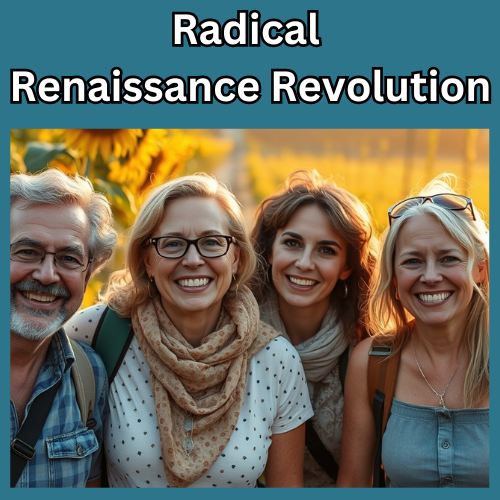A Path to Impactful Reinvention
There’s a particular kind of disorientation that arrives after the dust of divorce begins to settle. The immediate legal and logistical storms may have passed, but in their wake lies a question that can feel both daunting and surprisingly liberating: Who am I now?
For accomplished professionals—those who have built careers while simultaneously building partnerships—this question takes on added dimensions. Your professional identity, once perhaps intertwined with your personal life in complex ways, now exists in a new context. The reflection in the mirror is familiar yet somehow different, and the path forward isn’t marked on any map you recognise.
I see you there, standing at this crossroads. The credentials and accomplishments remain yours. The expertise hasn’t vanished. Yet something fundamental has shifted, and with that shift comes both challenge and profound opportunity.
The Bruised-Not-Broken Divorce/BreakUp Recovery EcoSystem
The Hidden Impact of Divorce on Professional Identity
What many don’t discuss openly is how deeply a significant life transition like divorce can reverberate through our professional lives, even when we maintain outward composure and productivity. You’ve likely experienced some of these silent disruptions:
- The energy equation has changed. The emotional labour of processing a divorce creates an invisible tax on your mental resources, often leaving less bandwidth for creative thinking or strategic vision.
- Your risk tolerance may be in flux. Financial considerations, newly shouldered solo responsibilities, or a shaken sense of security might be subtly influencing your professional decisions.
- Your network has shifted. Connections that once seemed solid may have realigned with the separation, creating unexpected gaps in your professional ecosystem.
- Your timeline feels compressed or expanded. Divorce often triggers a recalibration of life timelines—some opportunities suddenly feel urgent, while long-held plans may need reconsideration.
- Your measuring stick for success has changed. Goals that made sense within the context of partnership might need reassessment as your personal narrative evolves.
What’s crucial to understand is that these shifts aren’t signs of professional weakness—they’re natural responses to profound life changes. The most successful reinventions begin not with immediate action, but with acknowledgement of this new terrain.
The False Choice of “Starting Over” vs. “Pushing Through”
When facing career considerations after divorce, many accomplished professionals fall into a binary trap: believing they must either completely reinvent themselves (abandoning valuable experience and expertise) or simply power through (ignoring how fundamentally their context has changed).
The truth lives in a more nuanced middle ground.
Your professional journey to this point remains valid and valuable. The skills, insights, and wisdom you’ve cultivated are not diminished by your change in personal circumstances. At the same time, ignoring how this transition has shifted your perspective, priorities, and possibilities would be a missed opportunity.
The path forward isn’t about erasing or preserving—it’s about integrating. Allowing your evolved understanding of life, relationships, and self to inform and enrich your professional identity creates something more authentic and sustainable than either extreme.
Reflection Exercise: Identities in Transition
Take a moment with pen and paper to explore these prompts without judgment:
- Complete this sentence: “Before my divorce, my professional identity was shaped by…”
- What aspects of your work have felt most challenging or disconnected since your separation?
- What parts of your professional self feel most authentically “yours” regardless of relationship status?
- If your career could evolve in any direction now, without practical constraints, what might that look like?
Notice which questions evoke emotion or resistance. These responses often highlight areas where identity integration work is most needed.
Reclaiming Authority Over Your Professional Narrative
One of the most subtle yet significant losses in divorce can be control over your own story. Between well-meaning questions from colleagues, assumptions from your network, and perhaps your own uncertainty, your professional narrative may feel like it’s being written by a committee.
Reclaiming authorship of your story is essential for meaningful reinvention. This doesn’t mean constructing an artificial persona, but rather thoughtfully determining how your experience integrates into your professional identity.
Some professionals choose to compartmentalise completely, keeping their personal transition separate from their work identity. Others find power in selectively incorporating their journey into their professional narrative, recognizing how navigating complex change has enhanced their leadership capabilities, emotional intelligence, or perspective.
There is no universally correct approach—only the one that aligns with your authentic self and professional context. What matters is that the choice is consciously yours.
Exercise: Narrative Reclamation
Consider how you might respond to these common scenarios:
- A networking contact asks what prompted your interest in exploring new opportunities.
- A colleague inquires about changes they’ve noticed in your professional focus.
- A potential employer or client asks about gaps or transitions on your resume.
For each scenario, draft three potential responses:
- One that maintains complete privacy around your personal transition
- One that acknowledges the transition while emphasizing professional growth
- One that authentically integrates the insights gained from your personal experience
The goal isn’t to memorize scripts, but to recognize you have choices in how you frame your journey.
The Permission to Realign: Values, Strengths, and Purpose
Perhaps the most transformative opportunity in this transition is the chance to reassess the alignment between your work and your core self. Many accomplished professionals have built careers based on a set of assumptions about what success looks like, what security requires, or what others expect—assumptions that may have been negotiated within the context of partnership.
Now is the time to question whether those assumptions still serve you.
Exercise: Values Clarification for Career Alignment
- Without overthinking, quickly list the ten values that feel most important to you today. (Examples might include: autonomy, security, creativity, impact, connection, learning, leadership, etc.)
- Review your list and narrow it to the five most essential values in this chapter of your life.
- For each of these five values, rate how well your current professional situation honours and expresses this value on a scale of 1-10.
- For any value scoring below a 7, explore:
- What small shifts might better honour this value?
- What would a work-life fully aligned with this value look like?
- What’s one action step you could take this week toward better alignment?
This exercise often reveals that meaningful reinvention doesn’t necessarily require dramatic career changes. Sometimes small shifts in focus, boundaries, or how you approach your existing work can create significant alignment with your evolved values.
Practical Pathways for Professional Reinvention
While inner clarity forms the foundation for authentic reinvention, practical action brings possibilities to life. Here are pathways that have served other professionals navigating similar transitions:
1. The Refocus
Rather than changing careers entirely, this approach involves leaning into aspects of your current work that feel most energizing and aligned with your evolving identity. This might mean:
- Seeking out specific types of projects or clients
- Developing a speciality that excites you
- Shifting your role to emphasise strengths that feel most authentically “you”
Micro-Action Step: Identify one project or responsibility in your current role that consistently energises rather than depletes you. Request more involvement in similar work over the next quarter, even if it requires trading away less-aligned responsibilities.
2. The Strategic Pivot
This approach maintains a connection to your established expertise while shifting how you apply it. Examples include:
- Moving from a corporate role to consulting in your field
- Transitioning from frontline work to teaching or mentoring
- Applying your industry knowledge in an adjacent sector
Micro-Action Step: Schedule an informational interview with someone working in an adjacent role or sector that interests you. Approach the conversation with curiosity about how your transferable skills might apply in this new context.
3. The Evolution
This pathway involves intentionally developing new skills that complement your existing expertise, creating a unique professional profile that opens fresh opportunities:
- Adding technological capabilities to traditional expertise
- Combining seemingly unrelated interests into a distinctive offering
- Acquiring certifications that officially validate strengths you’ve developed through life experience
Micro-Action Step: Identify one skill that would meaningfully complement your existing expertise. Find a low-risk way to begin developing this capability—perhaps through an online course, volunteer opportunity, or small project.
4. The Authentic Reinvention
Some transitions create space for more fundamental reconstruction—particularly when your previous career path was heavily influenced by compromise or external expectations:
- Exploring long-deferred professional dreams
- Building around passions that previously seemed impractical
- Creating entirely new professional identities aligned with your core values
Micro-Action Step: Without concern for practicality, write a detailed description of your ideal professional day five years from now. What energies, activities, and impacts would fill this vision? Now identify one small element you could begin incorporating into your life immediately.
The Timeline of Transformation: Patience with Process
One of the most common pitfalls in professional reinvention after divorce is underestimating the time required for meaningful change. The pressure to quickly establish a new normal can lead to premature decisions that don’t serve your longer-term wellbeing.
Remember that significant transitions involve multiple dimensions of change:
- Emotional processing of both losses and new possibilities
- Practical stabilisation of finances and logistics
- Identity integration as you reconcile who you were with who you’re becoming
- Community rebuilding as you establish new support systems
- Skill development for emerging directions
These processes unfold according to their own natural timing and can’t be rushed without cost. Give yourself permission to move through reinvention methodically, recognising that what feels like “slow progress” may actually be the optimal pace for sustainable change.
Exercise: Strategic Pacing
For any professional changes you’re considering:
- Identify which could be implemented immediately with minimal risk
- Which would benefit from a 3-6 month exploration phase
- Which represent longer-term visions requiring 1-2 years of preparation
Create a simple timeline with these categories, placing potential changes where they realistically belong. This visualisation helps manage both impatience and overwhelm by creating a structured approach to transformation.
The Unexpected Gifts: How Personal Transition Enhances Professional Capacity
While the challenges of divorce are real, many professionals discover that navigating this transition ultimately enhances their professional capabilities in unexpected ways:
- Increased emotional intelligence from processing complex feelings
- Greater authenticity as pretences and compromises fall away
- Enhanced resilience developed through adapting to unwanted change
- Deeper empathy for others facing life transitions
- Clearer boundaries between personal and professional energies
- More intentional decision-making as automatic patterns are disrupted
These capacities represent significant professional assets in today’s workplace, where adaptive leadership, authentic connection, and emotional intelligence are increasingly valued. The very experience that feels disruptive now may be developing capabilities that distinguish you professionally in the future.
Closing Thoughts: The Integration of Personal Wisdom and Professional Identity
The journey of rebuilding professional identity after divorce isn’t simply about career strategy—it’s about integration. Integration of who you were with who you’re becoming. Integration of hard-earned personal wisdom with professional expertise. Integration of loss with new possibility.
This process, while challenging, creates the foundation for something remarkable: a professional identity that genuinely reflects and expresses your authentic self. Not the self that existed within a partnership, nor a completely reinvented persona, but an evolved identity that honours both your established capabilities and your emerging wisdom.
The path through this transition isn’t linear or predictable. There will be days of clarity and confusion, confidence and doubt. Yet with each conscious choice to align your professional life with your evolving truth, you build something invaluable—a career that not only showcases your talents but nourishes your whole self.
You stand at a crossroads that not everyone will understand. But those who have walked similar paths know this truth: the most meaningful reinventions aren’t about leaving everything behind, but about bringing your whole self—including the wisdom gained through transition—into what comes next.
If you’re navigating career reinvention after divorce and would benefit from personalised guidance, I offer exclusive one-on-one mentoring designed specifically for professionals in transition. Together, we can transform challenges into meaningful opportunities.

Ready to start again, stronger than ever before? This quiz will help you find out. It is not just about measuring where you are right now; it’s about shining a light on the areas of your life that feel meaningful, as well as those that might need attention. It’s an opportunity to reflect, recalibrate, and take steps toward a life that’s not only successful but profoundly fulfilling. Take The Quiz

If your soul is craving fresh air, meaningful movement, and a chance to reconnect with nature, join us on a Camino de Santiago Crossroads Retreat in the southwest of France. This isn’t just a scenic hike – it’s a powerful, natural reboot for your body, mind, and spirit. Imagine quiet paths, rolling hills, cozy evenings, and slow conversations. No fitness requirements. No forced bonding. No pressure to have a breakthrough. Just one foot in front of the other, and a journey that meets you exactly where you are.
Stress destroys Lives. To find out what you can do to safeguard your sanity by taking my insight-giving quiz, subscribe to my mailing list.

“I am an experienced medical doctor – MBChB, MRCGP, NLP master pract cert, Transformational Life Coach (dip.) Life Story Coach (cert.) Stress Counselling (cert.) Med Hypnotherapy (dip.) and EAGALA (cert.) I may have an impressive number of letters after my name, and more than three decades of professional experience, but what qualifies me to excel at what I do is my intuitive understanding of my clients’ difficulties and my extensive personal experience of managing major life changes using strategies I developed over many years.” Dr M Montagu

